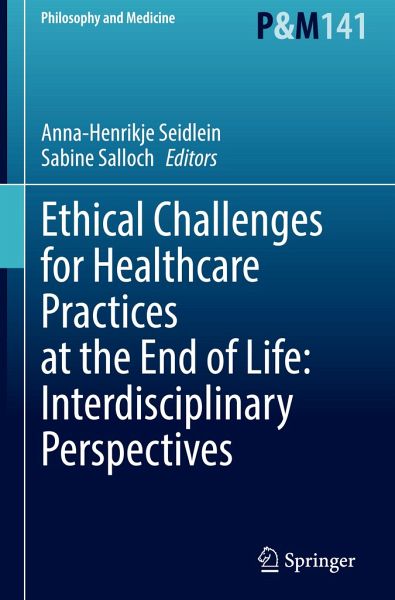
Ethical Challenges for Healthcare Practices at the End of Life: Interdisciplinary Perspectives

PAYBACK Punkte
27 °P sammeln!
This book presents a collection of exclusively selected manuscripts on current ethical controversies related to professional practices from an interprofessional perspective. Insights are provided into the diversity of practices and viewpoints from different countries are merged in a unique way. The book contributes to the debate on social and legal issues regarding end-of-life practices such as organ donation, medically assisted dying and advance care planning. In addition, joint international author groups contributed exclusive chapters about European comparisons on end-of-life topics. The fo...
This book presents a collection of exclusively selected manuscripts on current ethical controversies related to professional practices from an interprofessional perspective. Insights are provided into the diversity of practices and viewpoints from different countries are merged in a unique way. The book contributes to the debate on social and legal issues regarding end-of-life practices such as organ donation, medically assisted dying and advance care planning. In addition, joint international author groups contributed exclusive chapters about European comparisons on end-of-life topics. The focus on country- and culture-specific aspects broadens the view on key issues and makes the book attractive for an international readership. The variety of approaches and methods used informs and inspires the development of new research and best-practice projects.












